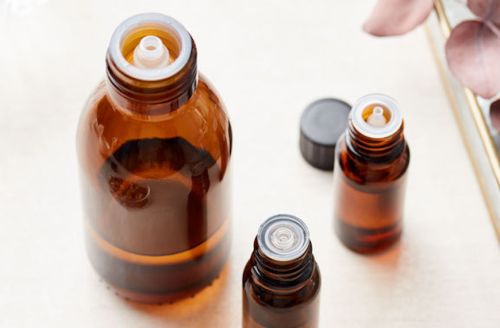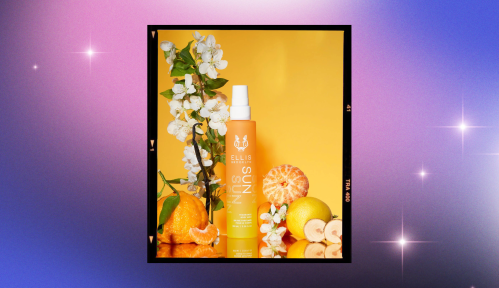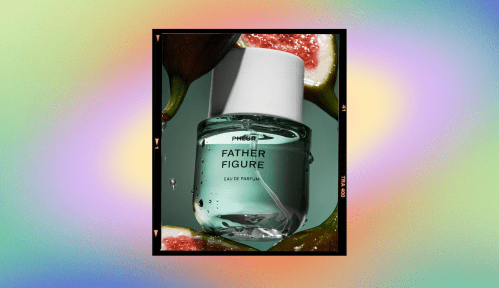What’s something that keeps you up at night, makes you turn red at the slightest provocation, and is the center of all your idle thoughts? No, it’s not a new romance—it’s itchy skin. Luckily, there are some essential oils that can potentially help with itchiness.
Experts in This Article
Barbara Close is a certified herbalist, esthetician and aromatherapist, and the founder of Naturopathica.
Dr. Enrizza P. Factor, a Clinical Dermatologist and researcher with myvitiligoteam.com
Heidi Liese Edsall is a holistic healing coach based in LA.
Jason Donahue is a former pharmacist who’s now the founder of The Herbal Zen.
Viktoryia Kazlouskaya is a board-certified dermatologist working at the University of Pittsburgh.
A persistent, can’t-stop-won’t-stop itch is its own kind of special torture, whether it’s from a mosquito bite or a bout of super dry skin. And if your aloe vera lotion isn’t quite cutting it, having an arsenal of essential oils on hand to help soothe (and even wipe out) your scratchy scaly ailments is…well, essential.
“Nature has given us some of the best, proven remedies for dry or itchy skin, and we’re able to harness the life force and healing properties of these botanicals as essential oils,” says Barbara Close, a certified herbalist, esthetician and aromatherapist, as well as the founder of Naturopathica.
Best essential oils for itchy skin
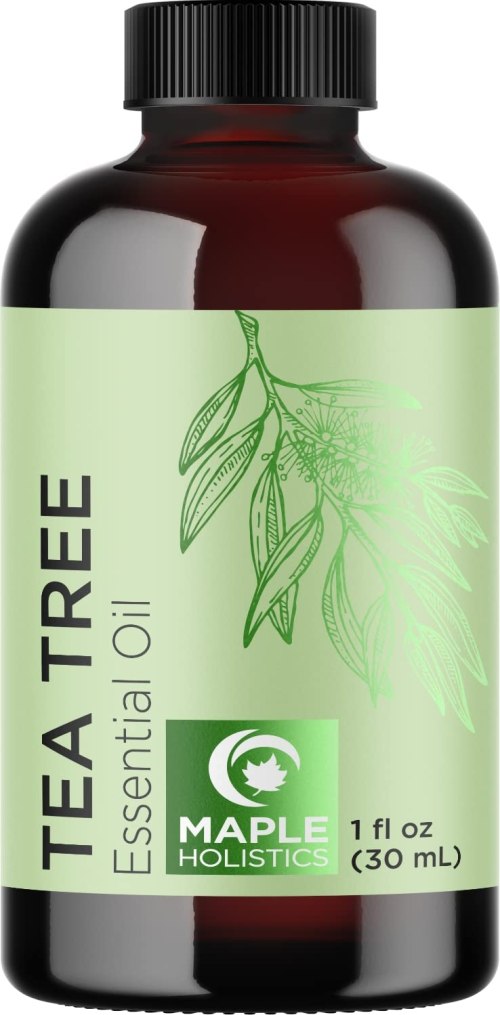
Tea Tree Oil — $10.00
Well known for its antiseptic and antiviral properties, tea tree oil can also soothe itchiness and discomfort. Especially in the case where mosquitos have decided to make a several course meal out of your blood, tea tree oil can come in handy — Close says the oil is the clear winner when it comes to spot treating the site of a bite. Close recommends placing a small amount on a tissue or cotton ball, then dabbing it directly onto the affected area. If you have sensitive skin, dilute with a carrier oil or mix with lotion since tea tree oil can be drying.
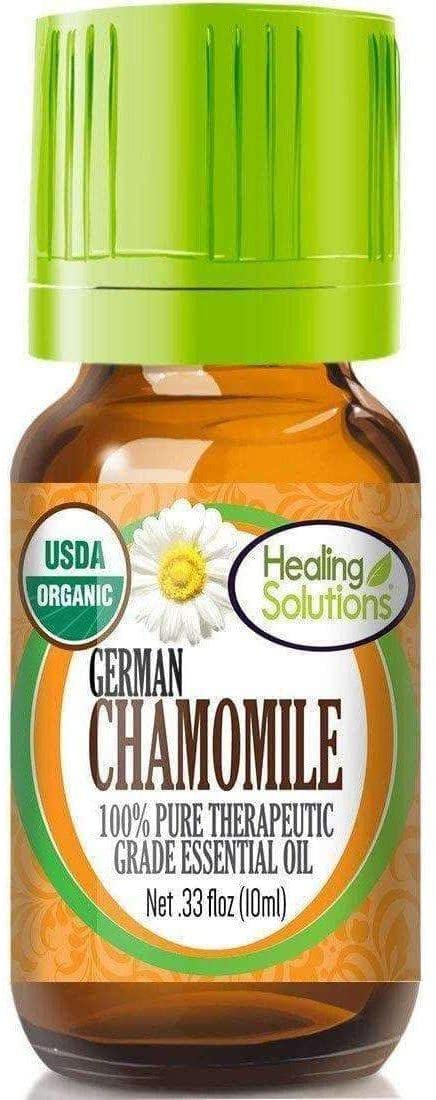
German Chamomile — $9.00
German chamomile is a potent anti-inflammatory oil due to high bisabolol content (a naturally-occurring antioxidant, anti-inflammatory ingredient), so Close says this oil is excellent for soothing itches caused by dry, sensitive skin. “The bright blue color is a hallmark of this oil, as is its ripe, honey-apple scent,” she says. Close says you should dilute the oil in a base oil like coconut, sunflower, or grapeseed before applying it to dry skin.
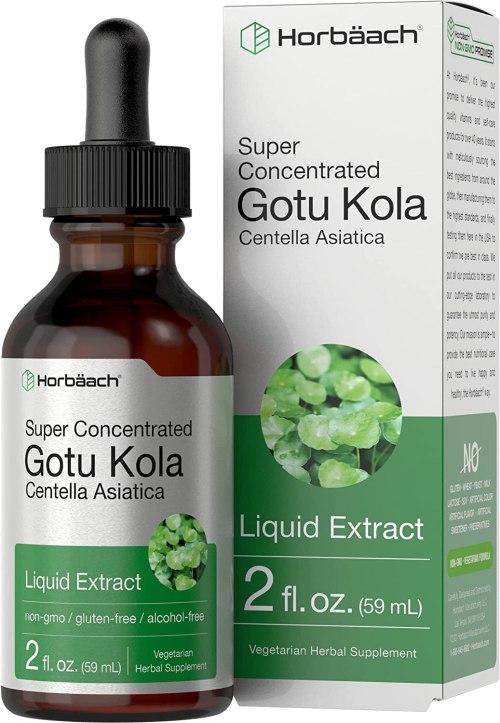
Centella Asiatica (Gotu Kola) Leaf Extract — $10.00
Whether you call this essential oil by its given name or one of its alternatives (like tiger grass, Asiatic pennywort or cica), its ability to repair and soothe skin is the same. In fact, Close says the multitasking herb is known for quelling itchiness associated with dryness and lack of elasticity associated with everything from eczema patches to stretching skin during pregnancy.
“Clinical studies show that centella asiatica helps to heal by stimulating collagen synthesis and increasing the level of antioxidants in newly formed tissues,” Close says. It’s also a known anti-inflammatory and helps soothe redness, too. To use, Close recommends adding a few drops of the essential oil to a base (or carrier) oil, lotion, or salve before applying to skin.
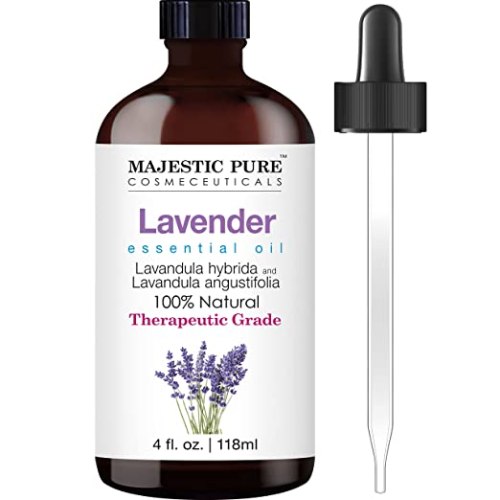
Lavender
Lavender is probably the number one essential oil when it comes to healing skin conditions, burns and cuts, say Dr. Enrizza P. Factor, a Clinical Dermatologist and researcher. “With its anti-inflammatory, antifungal, antimicrobial and detoxifying benefits, lavender essential oil can help reduce redness, soothe and calm the skin and rapidly heal minor cuts and scrapes, as well as any rashes.” It can also help soothe itchy bug bites and moisturize dry skin.
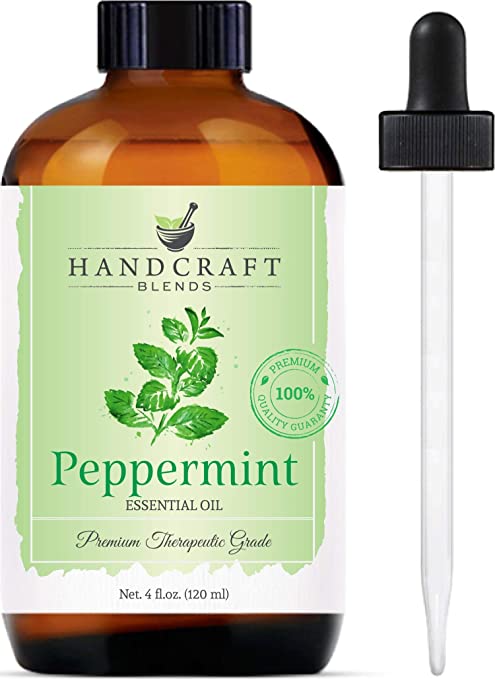
Peppermint — $16.00
Viktoryia Kazlouskaya, a board-certified dermatologist, says a correct diagnosis by a dermatologist is essential, as there are many reasons for itchy skin. However, she says there are a few essential oils that may be helpful in chronic itch and are often recommended by dermatologists. Peppermint oil is one of those, and there are a few clinical studies demonstrating that it may be helpful in itch caused by keloids or in pregnancy of pregnancy.
Jason Donahue, a former pharmacist and founder of The Herbal Zen says his go-to itchy skin relief is a 3:1 lavender/peppermint combo. “Too much peppermint can cause more irritation but just the right amount can work wonders,” he says.
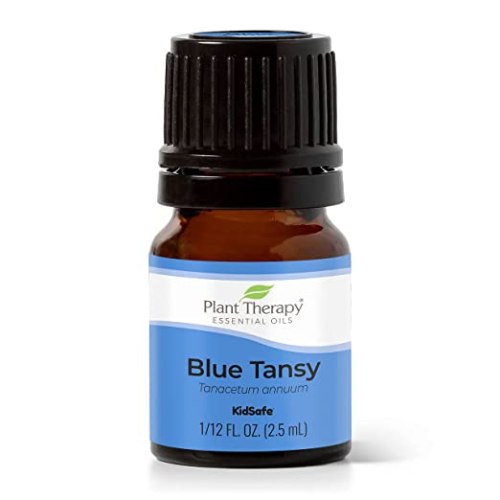
Blue Tansy — $16.00
Blue tansy essential oil is anti-inflammatory and work wells for dry, itchy skin, says Heidi Liese Edsall, an LA-based holistic healing coach. There are some studies that show sabinene or sabinene-containing oil, one the main components in blue tansy, has anti-inflammatory effects on skin.
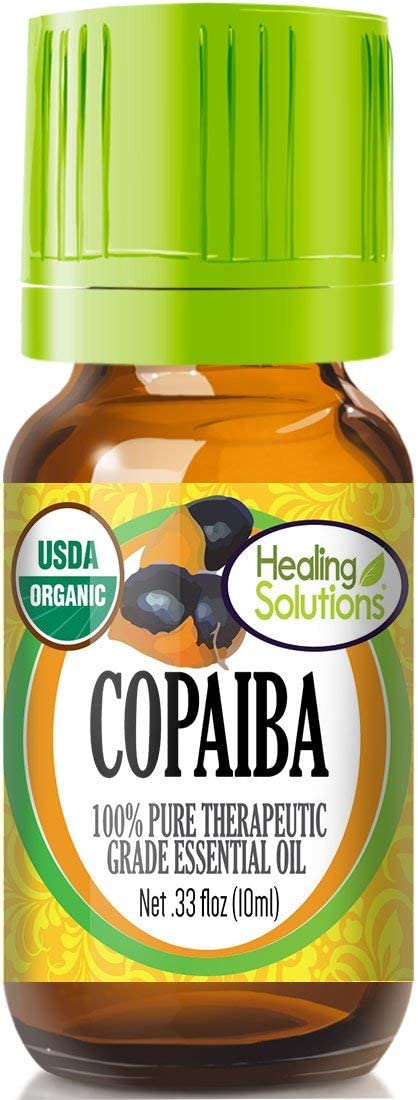
Copaiba — $9.00
Copaiba oil comes from copaiba trees found in South America. It “has a similar chemistry to CBD (although it has no relationship to CBD),” says Edsall, “and is a potent anti-inflammatory that can address any itching caused by auto-immune or nerve disorders.”
What should I look for when buying essential oils?
Repeat after me: quality, quality, quality. Not all on the long long list of essential oils are created equal, Close says. “Over 95 percent of the essential oils produced are made for the perfume and food industries, and they are often contaminated,” she says. “These synthetic or altered oils have little to no therapeutic benefit and may lead to adverse effects, like headaches and irritation.”
Avoid knockoffs and instead get high-quality oils by looking for clinical grade, pure essential oils with the Latin name of the plant on the packaging, Close says. Looking for the certified organic label is always a helpful indicator of quality. And look at the color of the bottle. Close says legit essential oils will be stored in dark glass (amber or cobalt) bottles to protect the oil from degrading with exposure to light.
One more thing: Does the price tag seem too good to be true? Then it probably is. “Most essential oils require large amounts of plant material to produce a single ounce, so the price should be proportionate,” Close says. So treat that $2 bottle of tea tree oil with a hefty dose of side-eye.
Anything I should know before applying?
Essential oils are potent—and potentially could cause irritation or allergic reactions in some people. (The last thing you want when you’re already itchy!) To reduce the risk of a reaction, Close says you should mix your essential oil of choice with a carrier oil, since most “are too potent for direct application.” She prefers using plant oils like argan, sunflower, borage, or jojoba to simultaneously soothe and strengthen while also delivering the healing essential oil to your skin.
You should also do a skin test before using any new essential oil. Swab a small diluted amount on the inside of your arm and see how your skin reacts. If you don’t see any irritation after 24 hours, proceed with caution—and discontinue use if you start to notice red, itchy bumps (which can be hard to tell if it’s hives vs eczema).
With a little patience (and some helpful EOs), you can avoid a seven-year itch situation. Calm, clear skin is in your future!
Sign up for the Well+Good SHOP Newsletter
Get exclusive deals on wellness, beauty, fitness, and food products that have been hand-picked by our editors.
Got it, you've been added to our email list.
